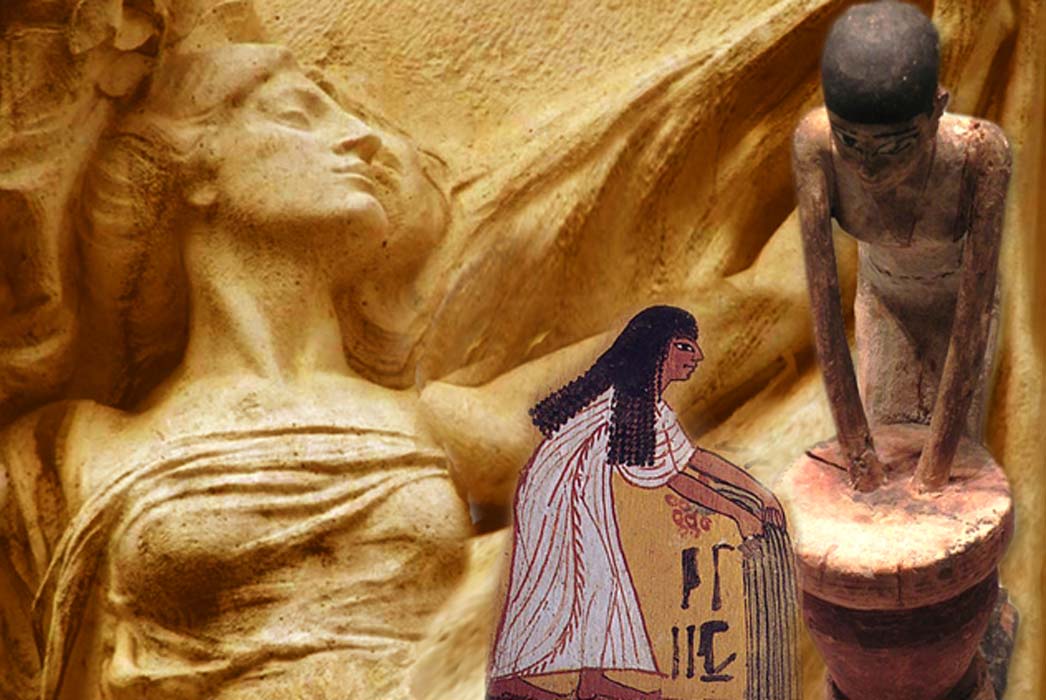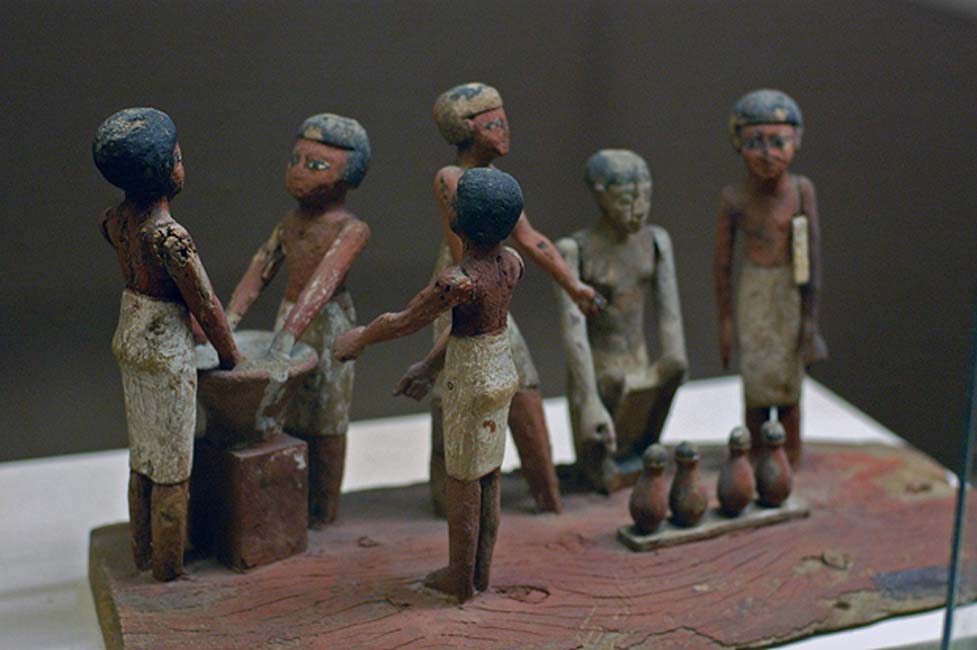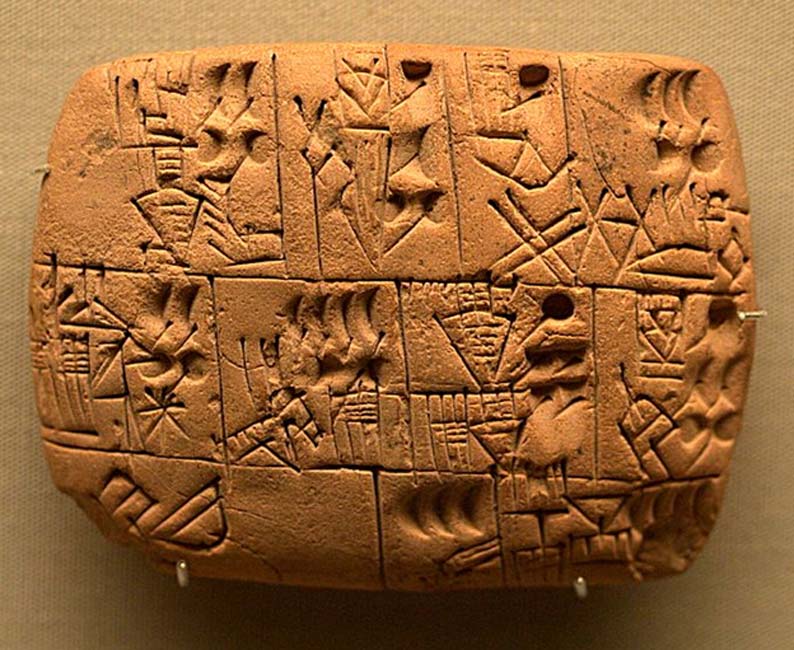
A Drink Fit for Goddesses: Beer and Mankind in Ancient Mythology
It is widely known these days that beer is one of the oldest beverages human beings have ever produced. Beer-related items and activities familiar to us today can be traced back to the ancient world. Evidence of early beer brewing has been confirmed by findings at the Sumerian settlement of Godin Tepe in modern-day Iran, which indicates that production of beer dates back possibly further than 3500-3100 BCE. A stamp seal from Tepe Gawra from 4000 BCE near Mosul, Iraq, shows two figures drinking together— indicating that people have been drinking socially for thousands of years.

Egyptian wooden model of beer making in ancient Egypt. (CC BY 2.5)
Beer is, in fact, such an ancient beverage that The Kalevala, an epic compilation of Finnish and Karelian folklore ranging from 1000 BCE to the 17th century CE, tells the story of the creation of Earth and humanity, as well as the creation of beer and its first fermentation. The Kalevala is divided into fifty chapters, with chapter 20 dedicated especially to the brewing of beer. The Code of Hammurabi from Babylon, mankind's oldest existing set of laws, sets fair prices for beer and specified harsh penalties for bars and brewers; a brewer who diluted his beer could be drowned in his own vat and a tavern owner who overcharged patrons could be put to death. As this indicates how much beer was valued in ancient society, it is only natural to conclude that beer also played a part in ancient mythology and religions.
Beer as a Source of Enlightenment in Sumerian Mythology
The Sumerians ascribed the creation of beer itself to the gods and beer plays a prominent role in many of the Sumerian myths. According to Sumerian mythology, Ninkasi was the daughter of Enki, the chief Sumerian god. She was born from “sparkling fresh water” and said to be created to satisfy desires and sate hearts. The first nearly complete text is a tablet known as The Hymn to Ninkasi (written in 1800 BCE but presumed to be much older). The Hymn to Ninkasi is both a praise to the goddess of beer and a recipe for brewing. The hymn instructs readers and listeners to handle the dough with a shovel; mix with sweet aromatics, honey, and grains; soak the malt in a jar, and filter it in the vat. The end result was said to be a beer comparable to the Tigris and Euphrates rivers, bringing life and enlightenment to all those who drank it. The first brewers were female, likely to be priestesses of Ninkasi, and early on beer was brewed by women in the home.

Cuneiform Pictographs Recording the Allocation of Beer. Thought to be from southern Iraq Late Prehistoric period, about 3100-3000 BC (CC BY 2.0)
In addition to Ninkasi, the Sumerian pantheon of gods included Dumuzi, who may also have been related to Tammuz, a god of food and vegetation worshipped by the later Mesopotamian states of Akkad, Assyria, and Babylonia. Dumuzi had a famous courtship with Inanna who, apart from being the goddess of love, fertility, and warfare, was also the patroness of tavern keepers.
- The Magical Sampo: Object of Power and Riches in Finnish Folklore
- 5,000-Year-Old Mesopotamian Pay Stub Reveals Workers Were Paid with Beer
- Drinking in the Past: Centuries Old Evidence for Consumption of Corn Beer Found in Mexico
Like the Kalevala, beer was also associated in the act of creation. Ashnan, the goddess of grain fields in Sumeria, was a very old deity who appeared in the Early Dynastic period (2900-2350 BCE). Her legend says that she and her brother Lahar, the god of cattle, were created by Enlil to provide food for the gods. One day they had too much to drink and could not serve as they should, so Enlil decided to create humans to serve the gods instead.
Tablet II in the Epic of Gilgamesh associates beer with evolution. The Epic of Gilgamesh is the oldest piece of written literature known to man, dating somewhere between the years of 2750 and 2500 BCE. It tells the story of a feral half-giant named Enkidu who was raised by wild animals and guided toward civilization by a prostitute named Shamhat.





